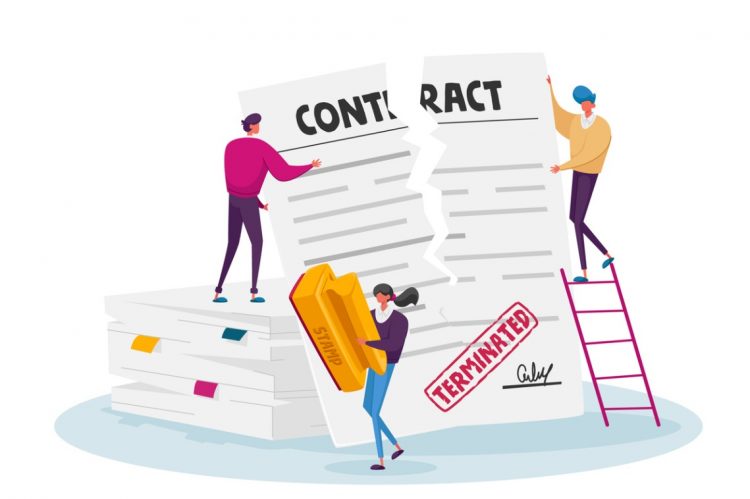When you sign the purchase agreement for your dream home, you are locked into a legal contract with the seller. But what happens if you need to back out?
Many ask if a seller can back out of a real estate contract but what about home buyers?
Perhaps something about the home isn’t as expected, or you haven’t received the financing needed. Whatever the reason, choosing to back out of a real estate contract could be costly.
Signing the purchase agreement usually means handing over an earnest money deposit. If you need to terminate a real estate contract, this money could go to the seller.
You must ensure sufficient protection in the purchase agreement when buying a home. If you hire an experienced real estate agent, they will make sure signing the purchase agreement doesn’t leave you open to unnecessary risk.
Signing a purchase agreement
When the seller accepts your offer, you will sign an agreement setting out the sale details. This will include the price, mortgage amount, and expected closing date.
Contingencies can also be included in the purchase agreement. Contingencies are clauses that allow the buyer or the seller to break a real estate contract. These contingencies let the buyer back out and keep their earnest money deposit.
If you try to cancel this binding agreement without a contingency, you could open yourself up to legal problems.
Common reasons buyers break the purchase contract
There are several reasons pending sales fall apart. Let’s review them.
Loss of income
You won’t qualify for the mortgage if you lose your job before closing on the home. This will naturally lead to you wanting to back out of your purchase.
Mortgage denied
If your application to the lender isn’t approved, you might have a financing contingency to allow you to walk away. However, this only gives you a limited time, and you will lose your earnest money outside of this timeframe.
Sometimes a buyer’s financial situation changes after a mortgage pre-approval is granted.
Appraisal problems
Occasionally in real estate sales, there will be an appraisal gap. Appraisal gaps occur when the appraiser determines the purchase price exceeds the market value. When there is an appraisal contingency, a buyer can exit the sale.
However, in hot real estate markets, appraisal contingencies are often waived.
Failing to sell an existing property
If the buyer needs the money from their current home to afford the new home, this can cause them to want to back out. A contingency can be included in the purchase agreement to deal with this problem, but sellers won’t wait long to sell.
The buyer could have two mortgages simultaneously, but they might not want to even if they can afford to do this.
Problems with the home inspection
If the inspector finds issues with the home, the buyer can back out using a home inspection contingency. They will get their earnest money returned if this happens within the time allowed in the agreement for the home inspection contingency.
Seller failings
If the seller fails to make agreed repairs to the home or doesn’t reveal things they should, the buyer can terminate the contract and keep their earnest money.
There could be other ways to deal with this situation, like agreeing to continue the purchase without repairs and putting money in escrow to cover the cost.
Title trouble
If the title isn’t clear, the seller might not be legally able to transfer the home to the buyer at closing. The title search could reveal serious issues like liens or other claims that must be resolved. If the seller cannot fix title issues, the buyer can exit the transaction.
When all these hurdles are cleared, the home moves from contingent to pending. Unfortunately, that doesn’t always happen.
How are purchase contracts canceled?
The exact way to cancel a purchase agreement will vary depending on the state. Generally, it will involve filling out a cancellation form signed by both the buyer and the seller. Sometimes it can take a bit of time to get the paperwork done.
What are the consequences of terminating a purchase agreement?
If there isn’t a contingency that covers the reason for backing out, the buyer could lose their earnest money deposit. This could be a serious loss of funds, with deposits of up to 10% of the purchase price required in some situations.
Though most of the time, the buyer won’t lose their deposit. With the contingencies typically included in purchase agreements, there are many ways to back out while keeping the deposit. If there is an inspection or financing contingency, many potential problems that could cause the buyer to change their mind will be covered.
While choosing to back out of a purchase is a big and stressful decision, if you have an experienced real estate agent working with you, their guidance could be invaluable.












